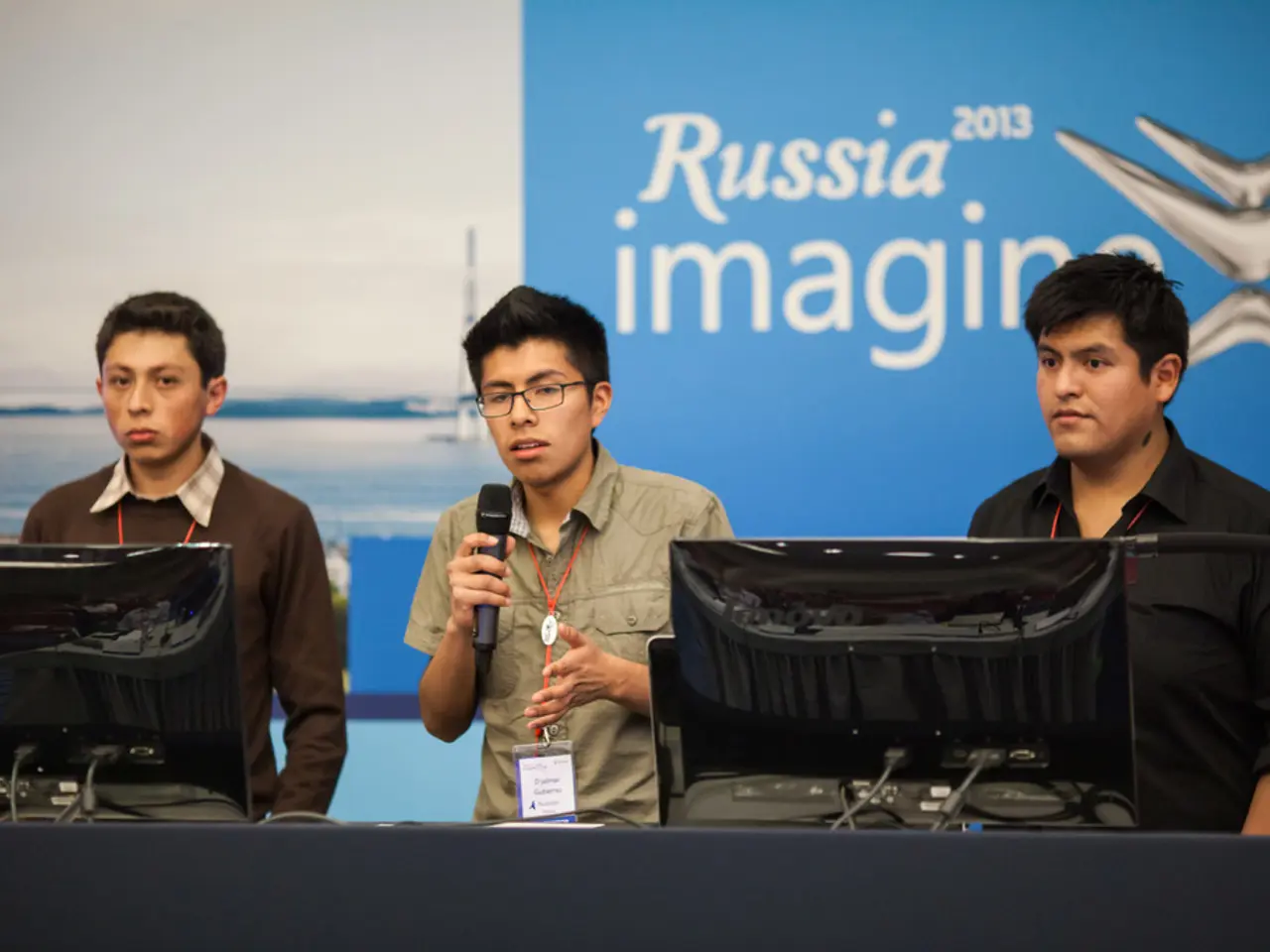In Ukraine, the exchanges of territories with Russia are met with widespread disapproval and are considered to be legally invalid
In the ongoing conflict between Ukraine and Russia, President Volodymyr Zelensky faces significant constitutional and legal barriers to ceding Ukrainian territory to Russia, as required by the Ukrainian constitution [1][3].
Under Article 73 of the Ukrainian Constitution, any alterations to Ukraine's territory can only be resolved through an All-Ukrainian referendum [1]. This referendum can be initiated by collecting three million eligible voters' signatures from at least two-thirds of Ukraine's regions [1]. Neither the President, the Cabinet of Ministers, nor the parliament have the authority to change Ukraine's territorial integrity or recognize foreign claims without this referendum [3].
Zelensky himself has publicly acknowledged that the Ukrainian constitution prohibits any ceding of territory, framing such concessions as illegal infringements on national sovereignty [2]. Politically and constitutionally, territorial concessions are considered non-negotiable by Ukrainian officials [4]. Recognizing occupied territories as Russian would be outside the constitutional order and politically unfeasible [4].
Any territorial concession imposed externally or agreed upon without constitutional processes (like a referendum) would be illegal and could expose Zelensky to criminal liability domestically [3].
From a military standpoint, abandoning the Donetsk region, which Russia controls almost entirely, would vastly improve Russia's ability to invade Ukraine again [5]. However, freezing the conflict would buy time for both sides to consolidate manpower and build up their domestic weapons industries [5]. Ihor Reiterovych, a politics professor, described freezing the conflict as the "lesser evil option" that would not provoke protests or rallies on the streets [5].
In summary, President Zelensky's ability to cede Ukrainian territory under the current constitution is severely constrained and essentially requires direct consent from the Ukrainian people via referendum. Attempts to alter territory through negotiations alone would violate the constitution and undermine Ukraine's sovereignty [1][2][3][4][5].
References: 1. https://www.constitution.gov.ua/en/ 2. https://www.reuters.com/world/europe/ukraines-zelenskiy-says-cannot-cede-territory-to-russia-2021-03-10/ 3. https://www.nytimes.com/2021/03/09/world/europe/ukraine-zelensky-russia-territory.html 4. https://www.rferl.org/a/ukraine-zelenskiy-territory-russia-constitution/31107180.html 5. https://www.washingtonpost.com/world/europe/ukraine-zelensky-russia-crimea-donbas/2021/03/10/d29c85b8-14a7-11eb-913b-492d6383c7e9_story.html
Read also:
- Court petitions to reverse established decision on same-sex marriage legalization
- Commemoration of 200 Days of American Resurgence Unveiled
- Minister Bärbel Bas expresses doubts about her tenure as a minister following a recent interview during the summer.
- Politicians from both Republican and Democratic parties are urging President Trump to maintain the security agreement with Australia and the United Kingdom.








